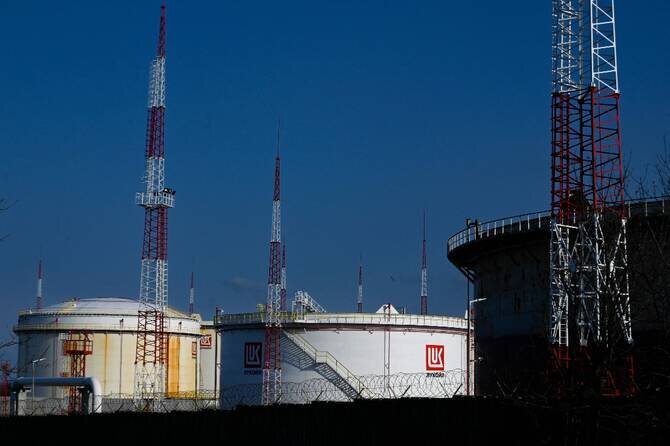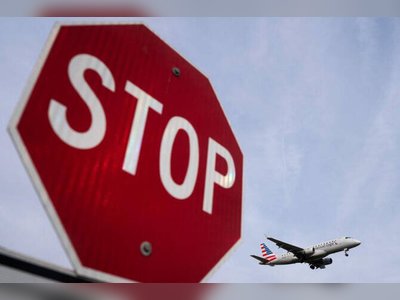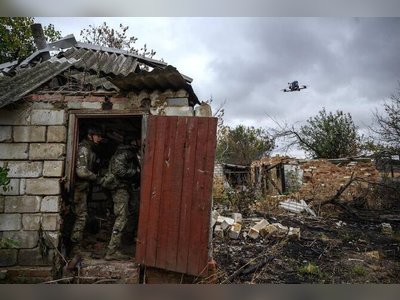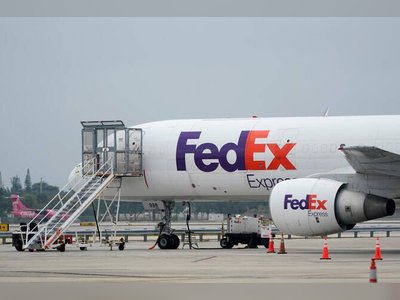
Bulgaria Takes Measures to Prevent Lukoil Refinery Shutdown Ahead of US Sanctions
Parliament in Sofia approves legal changes granting state authority to a government-appointed manager at the only oil refinery.
Bulgaria is taking measures to prevent the shutdown of its only oil refinery ahead of upcoming US sanctions on its Russian owner, Lukoil.
The Parliament in Sofia recently approved legal changes that grant additional state authority to a government-appointed manager overseeing the Black Sea coast-based Burgas refinery.
The move comes after a prominent international commodities trader withdrew plans to purchase Lukoil's international assets, rejecting allegations by the US government of the company being 'the Kremlin's puppet.' Lukoil has announced the sale of its international assets in response to US sanctions aimed at pressuring Russia into ceasing its war against Ukraine.
The oil giant operates in 11 countries and holds stakes in various oil and gas projects, including the Burgas refinery.
Under the newly approved amendments, the appointed manager is granted significant operational control over the refinery, including the right to sell its shares.
Opposition lawmakers have criticized these changes, suggesting they may provoke legal action against Bulgaria.
Ivaylo Mirchev, leader of the Democratic Bulgaria alliance, argued that the granted powers could lead Lukoil to sue Bulgaria, with potential financial benefits flowing into Russia.
The ruling coalition introduced the amendments, citing the scheduled implementation of US sanctions on November 21, which they believe will effectively halt the refinery's operations due to counterparties' refusal to engage with Lukoil-owned companies.
The Burgas refinery, acquired by Lukoil in 1999, is the largest oil refinery in the Balkans and values at an estimated 1.3 billion euros ($1.5 billion).
Lukoil-Neftochim refinery plays a significant role in Bulgaria's economy, with a turnover of about 4.7 billion euros ($5.4 billion) in 2024.
Its extensive network of oil depots and gas stations, along with its supplies to ships and aircraft, grants it near-monopoly status.
In response to the impending sanctions, Bulgaria has imposed temporary restrictions on the export of petroleum products to ensure sufficient domestic supplies.
This measure includes exports destined for other European Union members, particularly diesel and aviation fuel.
The Parliament in Sofia recently approved legal changes that grant additional state authority to a government-appointed manager overseeing the Black Sea coast-based Burgas refinery.
The move comes after a prominent international commodities trader withdrew plans to purchase Lukoil's international assets, rejecting allegations by the US government of the company being 'the Kremlin's puppet.' Lukoil has announced the sale of its international assets in response to US sanctions aimed at pressuring Russia into ceasing its war against Ukraine.
The oil giant operates in 11 countries and holds stakes in various oil and gas projects, including the Burgas refinery.
Under the newly approved amendments, the appointed manager is granted significant operational control over the refinery, including the right to sell its shares.
Opposition lawmakers have criticized these changes, suggesting they may provoke legal action against Bulgaria.
Ivaylo Mirchev, leader of the Democratic Bulgaria alliance, argued that the granted powers could lead Lukoil to sue Bulgaria, with potential financial benefits flowing into Russia.
The ruling coalition introduced the amendments, citing the scheduled implementation of US sanctions on November 21, which they believe will effectively halt the refinery's operations due to counterparties' refusal to engage with Lukoil-owned companies.
The Burgas refinery, acquired by Lukoil in 1999, is the largest oil refinery in the Balkans and values at an estimated 1.3 billion euros ($1.5 billion).
Lukoil-Neftochim refinery plays a significant role in Bulgaria's economy, with a turnover of about 4.7 billion euros ($5.4 billion) in 2024.
Its extensive network of oil depots and gas stations, along with its supplies to ships and aircraft, grants it near-monopoly status.
In response to the impending sanctions, Bulgaria has imposed temporary restrictions on the export of petroleum products to ensure sufficient domestic supplies.
This measure includes exports destined for other European Union members, particularly diesel and aviation fuel.









